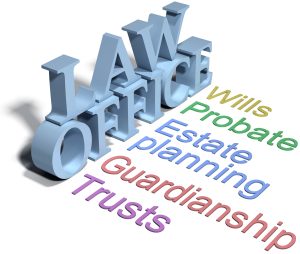 It is not uncommon that a person who dies was the subject of an Article 81 Guardianship proceeding prior to death. The Guardianship statutes are contained in Article 81 of the Mental Hygiene Law. A Guardian for personal needs and property management will be appointed where a person is determined to be incapacitated. Incapacity is defined in MHL Section 81.02 and essentially requires that a person is likely to suffer harm because they are unable to provide for their personal or property needs and they cannot “understand and appreciate” their disability (81.02(b)). It should be recognized that the guardianship provisions rely on an assessment of functionality, or the extent to which a person is able to handle activities of daily living, as opposed to a strict medical or psychological diagnosis.
It is not uncommon that a person who dies was the subject of an Article 81 Guardianship proceeding prior to death. The Guardianship statutes are contained in Article 81 of the Mental Hygiene Law. A Guardian for personal needs and property management will be appointed where a person is determined to be incapacitated. Incapacity is defined in MHL Section 81.02 and essentially requires that a person is likely to suffer harm because they are unable to provide for their personal or property needs and they cannot “understand and appreciate” their disability (81.02(b)). It should be recognized that the guardianship provisions rely on an assessment of functionality, or the extent to which a person is able to handle activities of daily living, as opposed to a strict medical or psychological diagnosis.
On its face, it would appear that a determination of incapacity and the appointment of a Guardian would automatically result in a lack of testamentary capacity for such person to execute a Last Will and Testament. However, such is not the case. To begin with, MHL 81.29(b) specifically provides that, where a guardian is appointed, it is not conclusive evidence that someone does not have capacity to dispose of an estate by a Last Will. There are additional considerations as well.
This issue arose in a recent Brooklyn estate case entitled Probate Proceeding, Will of Phylliscita Ismay Samuel, decided by Brooklyn Surrogate Bernard J. Graham on January 11, 2024. In the Surrogate’s Court case, the Court was asked to grant summary judgment and deny probate to a Will, which was executed following a determination of incapacity and the appointment of a Guardian. The party moving for summary judgment relied on this determination to seek the summary rejection of the Will. The Court denied the motion and found that issues of fact existed requiring a trial. The Court’s ruling included recognition that the determination of capacity in a Guardianship case is different from the testamentary capacity required to execute a Will. Article 81 is a test of functionality while testamentary capacity involves just understanding a person’s property, the natural objects of one’s bounty and that the person is entering into a Will.
 New York Probate Lawyer Blog
New York Probate Lawyer Blog











